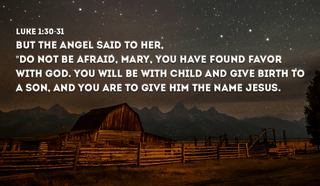
- Recent Translations
- All Translations
Luke 1:78
Share
Settings
Luke 1:78 in Other Translations
Luke 1:78 Meaning and Commentary
Through the tender mercy of our God
or "bowels of mercy", to which the forgiveness of sin is owing; the source and spring of pardon, is the free grace and abundant mercy of God; it takes its rise from thence, though it is channelled in the blood and sacrifice of Christ; and which no way derogates from, but rather heightens the riches of God's grace and mercy: for it was mercy that moved God to enter into a covenant with his Son, in which forgiveness of sin is promised; and it was mercy to set forth his Son, in his eternal purposes and decrees; and to send him forth in the fulness of time, to shed his blood for the remission of sins; it was the mercy of God to us, that provided a lamb for a burnt offering, and then accepted of the sacrifice and satisfaction of his Son, in our room and stead, and forgave all our sins, for his sake; and whatever the pardon of our sins cost God and Christ, it is all free grace and mercy to us: it is owing not to the absolute mercy of God, or to the mercy of God as an absolute God, but to the mercy of "our" God; our God in Christ, our covenant God and Father, whose bowels yearned towards us, and whose pity is that of a tender parent: whereby
the day spring from on high hath visited us:
the word (anatolh) , here used, and is translated "the day spring", is the same which the Septuagint use, in ( Jeremiah 23:5 ) ( Zechariah 3:8 ) ( 6:12 ) where the Messiah is spoken of, under the name of the "branch": and undoubtedly the Messiah Jesus, is intended here, who is the man, that branch, that has grown up out of his place; not from below, but from above; and who is the phosphorus, or bringer of light, that bright and morning star, that sun of righteousness, who has light in himself, and communicates light to others; even light natural, spiritual, and eternal; and with his rays and beams of light, life, and love, refreshes, exhilarates, and warms, the hearts of his people: and by the "visit" he has made in our "horizon", is meant his assumption of human nature; which, like a friendly visit, proceeded from pure love to the children of God; and was a drawing near unto them, for it was a taking on him their nature, in which he represented their persons; and was done through much difficulty and great condescension, since he was in the form of God, and thought it no robbery to be equal with him; and his stay on earth in this nature, was but for a little while; so that on all accounts, it may be truly called a "visit": and which, as the remission of sin is wholly owing to the tender mercy of our God, who put him upon it, called him to it, sent him forth made of a woman, and in the likeness of sinful flesh, to obtain eternal redemption, in which mercy and truth met together: the end and design of this visit, are signified in the next verse; for the following words belong to the day spring from on high, and not to John the Prophet of the Highest.
Luke 1:78 In-Context
Cross References 1
-
1.
Malachi 4:2

